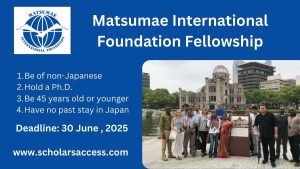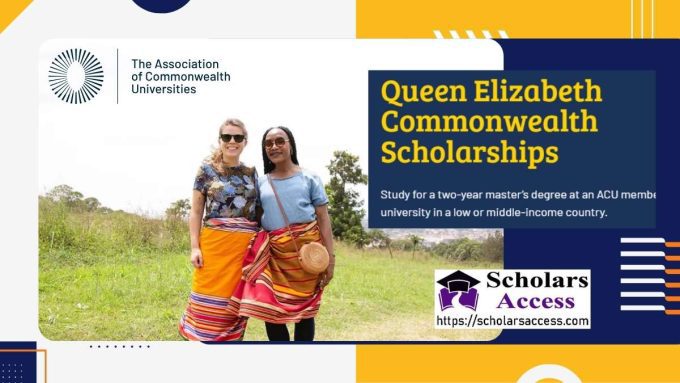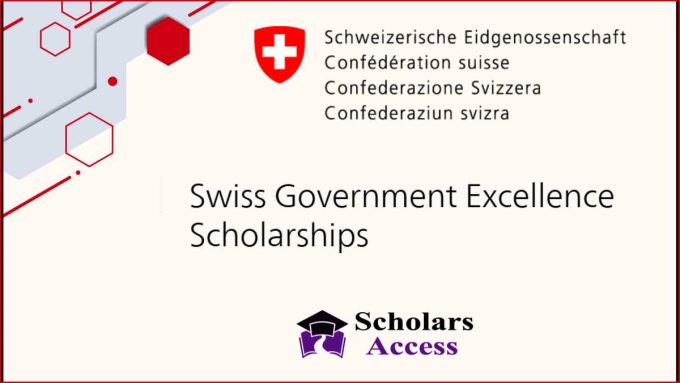The Commonwealth Scholarship stands as a beacon of educational opportunity, fostering international collaboration and development across member nations. Established in 1959, this prestigious program has enabled over 31,000 individuals to pursue advanced studies in the United Kingdom, nurturing leaders who contribute significantly to their home countries and the global community. This comprehensive exploration delves into the history, objectives, types, application process, benefits, and enduring impact of the Commonwealth Scholarship.
Historical Overview
The inception of the Commonwealth Scholarship dates back to the first Commonwealth Education Conference in 1959, where the Commonwealth Scholarship and Fellowship Plan (CSFP) was established. The program aimed to promote mutual cooperation and understanding among member countries through the exchange of scholars and ideas. The first cohort of 175 scholars arrived in the UK in 1960, marking the beginning of a legacy that has spanned over six decades. Throughout this period, the scheme has continually evolved, adapting to the changing dynamics of a 56-nation Commonwealth as of 2022.
Objectives and Mission
The Commonwealth Scholarship Commission (CSC) in the UK administers the program with a clear mission: to provide a world-class scholarship scheme that contributes to sustainable development across the Commonwealth. The core objectives include:
- Promoting Sustainable Development: By supporting individuals who demonstrate the potential to make significant contributions to their home countries, the scholarship aims to foster sustainable development in various sectors.
- Enhancing Equity and Inclusion: The CSC is committed to ensuring that its programs promote equity and inclusion, rewarding merit while delivering widespread access, especially to those from disadvantaged backgrounds.
- Supporting Research and Innovation: Encouraging cutting-edge research, innovation, and knowledge exchange throughout the Commonwealth is a pivotal goal, aiming to address global challenges through collaborative efforts.
Types of Commonwealth Scholarships
The CSC offers a diverse range of scholarships and fellowships tailored to meet the varying needs of students and professionals across the Commonwealth. These include:
- Commonwealth Master’s Scholarships: Designed for individuals from low and middle-income countries to pursue full-time taught master’s courses at UK universities.
- Commonwealth PhD Scholarships: Aimed at candidates from least developed countries and fragile states, these scholarships support full-time doctoral study at a UK university.
- Commonwealth Split-site Scholarships: These scholarships enable PhD candidates to conduct research in the UK as part of their doctoral studies in their home country, fostering international academic collaboration.
- Commonwealth Shared Scholarships: Offered in partnership with UK universities, these scholarships are for candidates from least developed and lower middle-income countries who would not otherwise be able to study in the UK.
- Commonwealth Distance Learning Scholarships: These scholarships allow individuals to pursue part-time master’s study by distance learning on selected courses offered by UK universities, enabling them to remain in their home countries while upgrading their qualifications.
- Commonwealth Professional Fellowships: Targeted at mid-career professionals from low and middle-income countries, these fellowships provide opportunities to spend time at a UK host organization for professional development.
- Commonwealth Medical Fellowships: For mid-career medical professionals from low and middle-income countries, these fellowships offer opportunities to enhance clinical skills.
Application Process and Eligibility
The application process for Commonwealth Scholarships is rigorous and competitive, designed to identify individuals with exceptional academic merit and potential for development impact. The general steps include:
- Eligibility Check: Applicants must be citizens or permanent residents of a Commonwealth country. Specific eligibility criteria vary depending on the scholarship type but generally include academic qualifications and relevant work experience.
- Course and Institution Selection: Candidates are required to apply for an eligible course at a UK university that has a part funding agreement with the CSC. Resources are available to assist applicants in researching their choices of institution and course of study in the UK.
- Application Submission: Applications must be made using the CSC’s online application system. Some scholarships may require applicants to apply through a nominating agency, such as a national nominating agency or a non-governmental organization.
- Supporting Documentation: Essential documents typically include proof of citizenship, academic transcripts, references, and a personal statement outlining the applicant’s development impact objectives.
- Selection Process: Applications are assessed based on academic merit, quality of the study plan or research proposal, and potential impact on the development of the applicant’s home country.
Application Deadlines and Contact Information
Application deadlines for Commonwealth Scholarships vary depending on the specific program and the academic cycle. For instance:
- Commonwealth Shared Scholarships: Applications for the 2025/26 academic year are scheduled to open in early November 2024 and close in mid-December 2024. Exact dates will be confirmed closer to the time.
- Commonwealth Distance Learning Scholarships: Candidate applications are expected to open in early February 2025 and close in mid-March 2025.
Prospective applicants should regularly check the CSC’s official website for the most up-to-date information on application opening and closing dates for each scholarship program.
Contact Information
For general inquiries, applicants can contact the Commonwealth Scholarship Commission at:
- Website: https://cscuk.fcdo.gov.uk
- Contact Form: https://cscuk.fcdo.gov.uk/about-us/contact-us/
Specific queries related to individual scholarship programs can be directed to the respective email addresses provided on the CSC’s website.
Benefits of the Scholarship
Commonwealth Scholarships offer comprehensive support to recipients, which generally includes:
- Tuition Fees: Full coverage of tuition fees for the duration of the study program.
- Living Allowance: A monthly stipend to cover living expenses while in the UK.
- Travel Costs: Airfare to and from the UK at the beginning and end of the scholarship.
- Thesis Grant: Assistance with costs related to the preparation of a thesis or dissertation, if applicable.
- Study Travel Grant: Contribution towards the costs of study-related travel within the UK or overseas.
- Family Allowances: In certain cases, additional allowances for spouses and children if they accompany the scholar to the UK.
Impact and Alumni Network
The impact of the Commonwealth Scholarship is profound and far-reaching. Alumni of the program have gone on to become influential leaders, policymakers, academics, and professionals who drive change in their respective fields. The CSC actively maintains an alumni network to foster ongoing collaboration and knowledge exchange among former scholars.
Notable impacts include:
- Policy Development: Alumni have contributed to shaping national and international policies, leveraging the knowledge and skills acquired during their studies.
- Educational Advancement: Many scholars have returned to their home countries to take up academic positions, thereby enhancing the quality of…education and mentoring future generations.
- Research Contributions: Scholars have engaged in groundbreaking research that addresses pressing global challenges such as climate change, health care inequality, education policy, and digital transformation.
- Capacity Building: Many alumni initiate or lead development projects, institutions, and networks in their home countries, directly contributing to capacity building and institutional growth.
Closing Thoughts
The Commonwealth Scholarship is more than a funding opportunity—it’s a transformative experience designed to empower talented individuals to become global leaders and innovators. Its impact is visible in thousands of alumni who continue to champion change in education, health, governance, science, and social development.
Aspiring applicants are encouraged to thoroughly research scholarship options, begin preparations early, and present compelling, development-oriented applications. By doing so, they not only increase their chances of selection but also join a network of visionaries working toward a more equitable and sustainable future.
Resources and Useful Links
- Official CSC Website: https://cscuk.fcdo.gov.uk
- Eligibility Guidelines: Commonwealth Master’s Eligibility Checklist
- Apply Now: CSC Application Portal
- FAQs Page: CSC FAQs
Contact Page: CSC Contact
Frequently Asked Questions (FAQs)
1. Who is eligible to apply for a Commonwealth Scholarship?
Eligibility criteria vary depending on the type of scholarship. However, general requirements include:
- Being a citizen or permanent resident of a Commonwealth country.
- Holding at least an upper second class (2:1) undergraduate honors degree by the time of application for Master’s scholarships; a relevant Master’s degree is usually required for PhD applicants.
- Not having studied or worked for more than one academic year in a high-income country.
- Demonstrating financial need (especially for Shared and Distance Learning scholarships).
Make sure to consult the specific eligibility checklist for the scholarship category you’re applying to on the CSC website.
2. Do I need to secure admission at a UK university before applying for the scholarship?
It depends on the type of Commonwealth Scholarship:
- For Commonwealth Shared Scholarships: You must apply both to the CSC and to the UK university offering the scholarship (usually through the university’s own admissions portal).
- For Master’s and PhD Scholarships: Applications to the CSC can be submitted independently, but securing an offer from a UK university is eventually required.
Universities also have their own internal deadlines and admission requirements, so it’s best to start both processes simultaneously.
3. What is the selection process like?
Applications are assessed based on three main criteria:
- Academic merit: Strong academic records, including transcripts and references.
- Quality of study plan or research proposal: Clearly articulated goals, alignment with development needs, and feasibility.
- Development impact: Potential to contribute to your home country’s development in line with global sustainable goals.
Shortlisted candidates may be asked for additional documentation or to attend interviews depending on the scholarship type.
4. Can I bring my family to the UK during the scholarship?
Yes, under some scholarship types, you can bring dependents:
- Scholars studying for longer than 18 months may receive additional allowances to support a spouse and/or children.
- However, scholars are responsible for ensuring they can meet UK visa and immigration requirements for dependents.
- It is advised to carefully assess financial and accommodation considerations before planning to bring family members.
5. What happens after completing my studies?
A core expectation of the Commonwealth Scholarship is that recipients return to their home countries to apply their knowledge and skills. Upon completion:
- Scholars are required to provide updates to the CSC on their employment and impact for a number of years.
- Many alumni join the Commonwealth Scholars and Fellows Alumni Association (CSFAA) or engage in CSC-led alumni events.
- The long-term aim is to create a network of global change-makers who actively contribute to sustainable development goals.














2 Comments